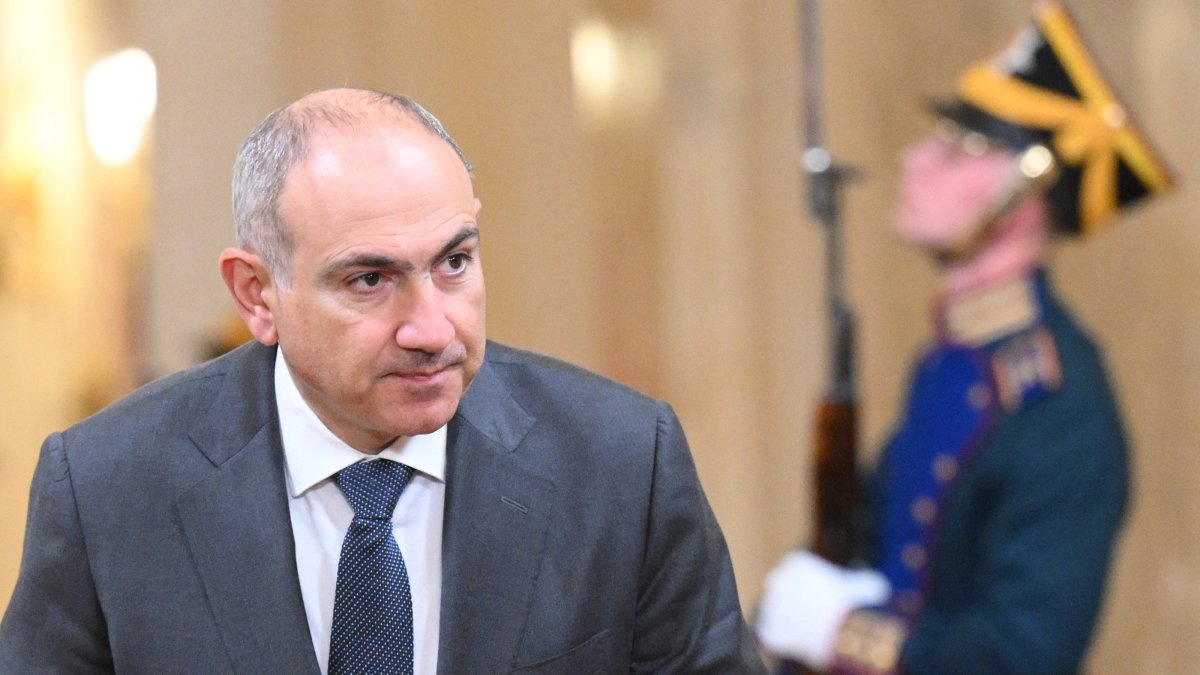Armenian Prime Minister Nikol Pashinyan on Monday said he would personally start constitutional changes if the country’s Constitutional Court rejects a peace deal with Azerbaijan after it is signed.
In an address to the 2nd Yerevan Dialogue international forum held in the Armenian capital, Pashinyan said the country’s Constitutional Court must check the peace deal between Armenia and Azerbaijan once it is signed to clarify if the agreement complies with the Constitution.
“It is not an option, it is compulsory,” Pashinyan said, expressing that they have two scenarios from that point onwards, the first of which is when the Constitutional Court does not find the deal to be compliant with the Constitution.
Pashinyan described this case to be improbable, according to experts, based on the process following the agreement signed between the two countries last August on the regulation of the joint work of border delimitation commissions.
“But, (the) court is (the) court. In case when (the) Constitutional Court would decide that this agreement isn’t compliant with our Constitution, we will have (a) very concrete situation to decide.”
“Personally, my position (is that), I would initiate constitutional changes because this peace process and peace agreement must not be missed. And we will try and we will persuade our society to make that amendment for reaching sustainable and long-lasting peace,” Pashinyan said.
He went on to say that should the Constitutional Court find the deal to be fully compliant with Armenia’s Constitution, then there would be no obstacles to its ratification by the country’s National Assembly.
Relations between the two former Soviet republics have been tense since 1991, when the Armenian military illegally occupied Karabakh – a territory internationally recognized as part of Azerbaijan – and seven adjacent regions.
Azerbaijan regained most of the territory during a 44-day war in the fall of 2020, which ended after a Russian-brokered peace agreement that opened the door to normalization and demarcation talks.
In September 2023, Azerbaijan established full sovereignty in Karabakh after separatist forces in the region surrendered.
Despite reaching a consensus on a peace agreement in March, both Baku and Yerevan have yet to sign the deal and have accused each other of cross-border attacks.
Pashinyan has recognized Baku’s sovereignty over Karabakh after three decades of Armenian separatist rule, a move seen as a crucial first step toward normalizing relations.
But he has faced a domestic backlash for making territorial concessions, including the return of four border villages to Azerbaijan last year.
Baku has made clear its expectations that Armenia remove from its Constitution a reference to its 1991 declaration of independence, which asserts territorial claims over Karabakh.
Any constitutional amendment would require a national referendum that could further delay the treaty’s finalization.



















































Be First to Comment